Ian Holliday says the jailing of two Reuters reporters investigating the deaths of 10 Rohinga by security forces has become a public relations disaster for Aung San Suu Kyi and the National League for Democracy (NLD) and doesn’t bode well for the future of Myanmar’s liberalization.
“She’s boxed herself into a corner,” Holliday, the vice-president of the University of Hong Kong (Teaching and Learning) and a Myanmar specialist, tells the Taipei Times. “The rule of law has always been her mantra, and she’s said this case is strictly for the courts. Once she’s taken a position, she’s extremely reluctant to change her mind. Here she’s said publicly that the journalists were jailed because the courts decided they broke the law. She’s also said their conviction has nothing to do with freedom of expression.”
Holliday will be in Taipei on Saturday when he will give a lecture, Liberalism and Democracy in Myanmar, as part of the Lung Ying-tai Cultural Foundation’s Taipei Salon series of talks by international speakers. Lung Ying-tai (龍應台), former culture minister and a professor at Hong Kong University, will moderate the talk.

Photo courtesy of Thukhuma Collection, thukhuma.org
DOMESTIC PRESSURE
The case highlights the extreme pressure at home and abroad that Aung San Suu Kyi is under as she continues to implement reforms. In addition to international pressure, she is aware that the military could tire of politicians and assume full power again.
“The 2008 constitution has an entire chapter on provisions for a state of emergency, which allows for a military takeover if national solidarity or national sovereignty are threatened,” Holliday says.
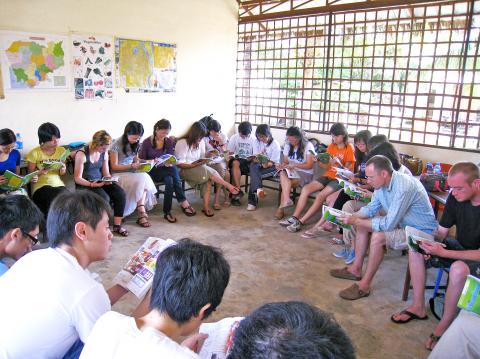
Photo Courtesy of Ian Holliday
But a “power grab” by the military is unlikely, he adds, because sharing power with the NLD has worked out very well for the generals. Which raises a question: can she use her, admittedly diminishing, moral authority and work behind the scenes to free the journalists and deal with the Rohinga crisis?
“Maybe she tried and failed — we don’t know. Taking a public stand against the military on the Rohingya issue would be immensely courageous — and politically suicidal, given that the Myanmar people are strongly anti-Rohingya,” Holliday says.
‘LIMITED LIBERALISM’

Photo courtesy of Thukhuma Collection, thukhuma.org
Holliday’s talk will examine Myanmar’s prospects for liberal democracy, a process that involves examining the experience of democratic consolidation in other countries, drawing on their historical legacies, constitutional provisions, key actors and commitment to dealing with an authoritarian past.
“Myanmar has a political culture that is partly liberal, partly illiberal and partly limited liberal — meaning that on some issues people hold inconsistent beliefs. They may think that democracy is good, but so too is military rule. They may hold that political rights should be exercised by all, but not by the Rohingya,” he says.
Holliday adds that the numbers of liberals in the country have stagnated, while those with illiberal and limited liberal beliefs are growing. “In these circumstances, a hybrid regime devised by former military rulers, in which power is shared between an elected government and an entrenched military machine, seems likely to remain in place for some time to come,” he says. “There could even be a slide back into autocracy.”
The talk will conclude ways to strengthen Myanmar’s democracy.
ART AND EDUCATION
For Holliday, Myanmar is more than just an academic interest. While traveling in Thailand in December 2007 to help displaced populations, he visited a number of schools on the Thai-Myanmar border and learned that their students needed help with English. The following summer he launched the Migrant Outreach Education Initiative program, which saw 22 students from University of Hong Kong travel to Thailand to deliver six weeks of intensive English classes to 700 refugees and migrants in 11 schools.
The following year they started a program in Cambodia and in 2011 another in Myanmar. They’ve also offered programs in China.
“Teachers get a chance to engage in meaningful service learning. Many of them form a strong bond with their students and return to teach again in their schools,” he said, adding that the goal is to help students develop confidence with English.
Holliday also has one of the world’s largest collections of art from Myanmar — over 1,000 works by over 100 artists. He began collecting in 2010 when the country was transitioning from military rule to a quasi-democracy.
In an interview last summer with ArtAsiaPacific, Holliday said that before the transition he couldn’t do scientific research in the country — “all you could do was sniff the air,” he told the art magazine.
Holliday said that political civil society and artistic civil society often overlapped because they were so small.
“If you sat down with civil-society leaders, you were often talking to painters,” he said.
Holliday’s motivation to collect art, which predominately consists of paintings, was that he wanted another view into the psyche of a population that is representing their ideas after 50 of military rule.
“After such a long period of isolation, people want the country to succeed and come back into the embrace of the modern world. But that’s only going to happen if we do that on a basis of understanding rather than ignorance. There are multiple ways we can do it, and I believe paintings are one way,” Holliday said.
His collection, which he eventually plans to donate to an institution, has enabled Myanmar art to reach a broader audience with traveling shows to the US and UK.
And what of the Reuters journalists?
“I think that eventually the appeal will have to find in favor of the journalists, or there will have to be a presidential pardon — everyone knows this is an issue Myanmar has to resolve if it’s to continue with its rehabilitation in international society. Media freedom is worse under the NLD than it was under the [Union Solidarity and Development Party] — that’s not likely to change,” he says.
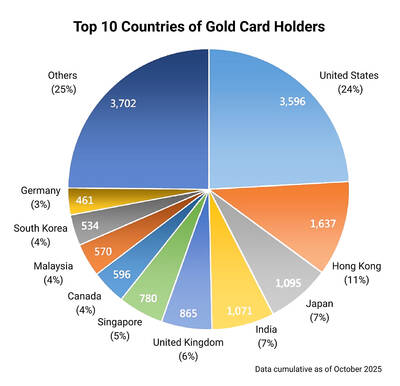
Seven hundred job applications. One interview. Marco Mascaro arrived in Taiwan last year with a PhD in engineering physics and years of experience at a European research center. He thought his Gold Card would guarantee him a foothold in Taiwan’s job market. “It’s marketed as if Taiwan really needs you,” the 33-year-old Italian says. “The reality is that companies here don’t really need us.” The Employment Gold Card was designed to fix Taiwan’s labor shortage by offering foreign professionals a combined resident visa and open work permit valid for three years. But for many, like Mascaro, the welcome mat ends at the door. A
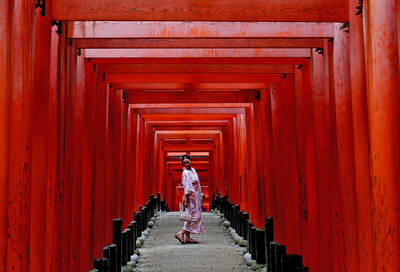
The Western media once again enthusiastically forwarded Beijing’s talking points on Japanese Prime Minister Sanae Takaichi’s comment two weeks ago that an attack by the People’s Republic of China (PRC) on Taiwan was an existential threat to Japan and would trigger Japanese military intervention in defense of Taiwan. The predictable reach for clickbait meant that a string of teachable moments was lost, “like tears in the rain.” Again. The Economist led the way, assigning the blame to the victim. “Takaichi Sanae was bound to rile China sooner rather than later,” the magazine asserted. It then explained: “Japan’s new prime minister is
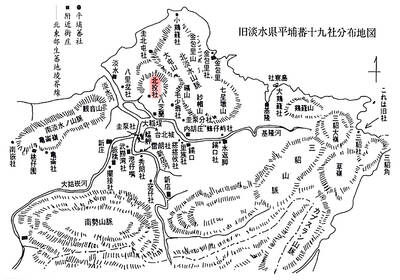
NOV. 24 to NOV. 30 It wasn’t famine, disaster or war that drove the people of Soansai to flee their homeland, but a blanket-stealing demon. At least that’s how Poan Yu-pie (潘有秘), a resident of the Indigenous settlement of Kipatauw in what is today Taipei’s Beitou District (北投), told it to Japanese anthropologist Kanori Ino in 1897. Unable to sleep out of fear, the villagers built a raft large enough to fit everyone and set sail. They drifted for days before arriving at what is now Shenao Port (深奧) on Taiwan’s north coast,
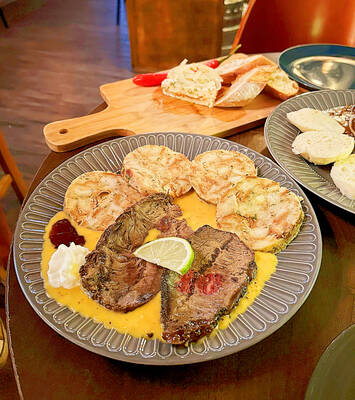
Divadlo feels like your warm neighborhood slice of home — even if you’ve only ever spent a few days in Prague, like myself. A projector is screening retro animations by Czech director Karel Zeman, the shelves are lined with books and vinyl, and the owner will sit with you to share stories over a glass of pear brandy. The food is also fantastic, not just a new cultural experience but filled with nostalgia, recipes from home and laden with soul-warming carbs, perfect as the weather turns chilly. A Prague native, Kaio Picha has been in Taipei for 13 years and